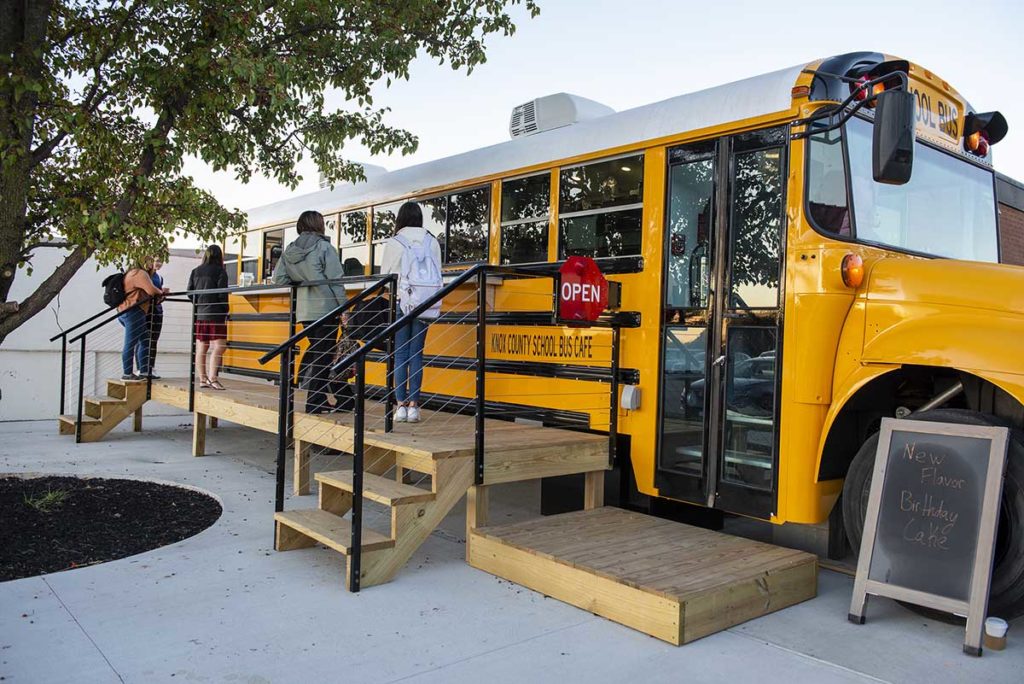
When Missouri’s Knox County R-1 School District welcomed an electric school bus to its fleet, it had a problem: What do you do with an old, diesel-burning school bus?
If you’re one of the district’s creative high school teachers and students, the answer is simple. Instead of hauling the bus to a scrap yard, turn it into a café.
Business is brisk at the Knox County School Bus Café, which made its debut this school year. Located just inside the high school’s breezeway and open on weekday mornings, students serve drip and specialty coffees to anyone needing their morning caffeine fix and a quick bite.
“It doesn’t matter how cold it is,” said Andy Turgeon, superintendent of the Edina-based school system. “There’s a line of people, students, adults and community members who show up and get their drinks.”
In its move toward phasing out diesel buses, the school district got a big assist from its local electric cooperative, Lewistown-based Lewis County REC. Missouri co-ops have been instrumental in helping usher in a new era of school transportation, lobbying state legislators to earmark funds from the $14.7 billion Volkswagen emissions fraud settlement for electric school buses. Lewis County REC helped Knox County R-1 apply for grants for the buses, which cost about $300,000, nearly three times more than diesel-powered models.
Knox County R-1’s repurposed diesel bus satisfies a key condition of using the VW settlement money—and takes it a step further.
“The whole idea behind the VW money is you’re improving air quality, so you have to promise to destroy the bus and take that diesel off the road,” said Turgeon. “In years past, we might have said, ‘Well, we’ll just take it to the scrap yard.’”
Turgeon said the bus café “was the perfect answer” for teachers looking for real-world, hands-on experiences for their students. “The business teacher had been asking me for three years to cut a hole in the classroom’s concrete wall so her students could have a store and simulate business situations.”
Teachers and students brainstormed and came up with the café concept. Business students designed the layout, ordered the equipment and figured out how to make coffee. Industrial tech students gutted and repainted the bus, added insulation, redid wiring and removed the engine to install a grill large enough to fit 150 burgers.
The school’s creativity could inspire others in the state as they incorporate electric buses into their fleets.
“The state has received 10 applications, and 10 electric school buses are going to be funded in the state of Missouri, half of which will be on electric cooperative systems,” said Travis Mathes, manager of member services and government relations at Lewis County REC.
Two more electric buses are headed to Knox County schools this spring. And just as they did with the café, students and teachers will transform the old diesel vehicles.
“There are some ideas floating around,” including an outdoor classroom and a tiny home, said Turgeon. “We’ll see what they come up with.”
Victoria A. Rocha is a staff writer for NRECA.